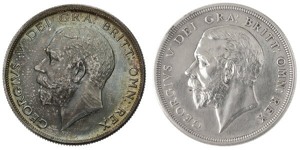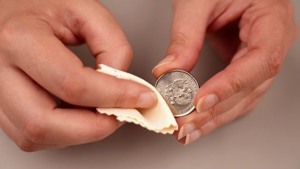Tavex uses cookies to ensure website functionality and improve your user experience. Collecting data from cookies helps us provide the best experience for you, keeps your account secure and allows us to personalise advert content. You can find out more in our cookie policy.
Please select what cookies you allow us to use
Cookies are small files of letters and digits downloaded and saved on your computer or another device (for instance, a mobile phone, a tablet) and saved in your browser while you visit a website. They can be used to track the pages you visit on the website, save the information you enter or remember your preferences such as language settings as long as you’re browsing the website.
| Cookie name | Cookie description | Cookie duration |
|---|---|---|
| tavex_cookie_consent | Stores cookie consent options selected | 60 weeks |
| tavex_customer | Tavex customer ID | 30 days |
| wp-wpml_current_language | Stores selected language | 1 day |
| AWSALB | AWS ALB sticky session cookie | 6 days |
| AWSALBCORS | AWS ALB sticky session cookie | 6 days |
| NO_CACHE | Used to disable page caching | 1 day |
| PHPSESSID | Identifier for PHP session | Session |
| latest_news | Helps to keep notifications relevant by storing the latest news shown | 29 days |
| latest_news_flash | Helps to keep notifications relevant by storing the latest news shown | 29 days |
| tavex_recently_viewed_products | List of recently viewed products | 1 day |
| tavex_compare_amount | Number of items in product comparison view | 1 day |
| Cookie name | Cookie description | Cookie duration |
|---|---|---|
| chart-widget-tab-*-*-* | Remembers last chart options (i.e currency, time period, etc) | 29 days |
| archive_layout | Stores selected product layout on category pages | 1 day |
| Cookie name | Cookie description | Cookie duration |
|---|---|---|
| cartstack.com-* | Used for tracking abandoned shopping carts | 1 year |
| _omappvp | Used by OptinMonster for determining new vs. returning visitors. Expires in 11 years | 11 years |
| _omappvs | Used by OptinMonster for determining when a new visitor becomes a returning visitor | Session |
| om* | Used by OptinMonster to track interactions with campaigns | Persistent |
| Cookie name | Cookie description | Cookie duration |
|---|---|---|
| _ga | Used to distinguish users | 2 years |
| _gid | Used to distinguish users | 24 hours |
| _ga_* | Used to persist session state | 2 years |
| _gac_* | Contains campaign related information | 90 days |
| _gat_gtag_* | Used to throttle request rate | 1 minute |
| _fbc | Facebook advertisement cookie | 2 years |
| _fbp | Facebook cookie for distinguishing unique users | 2 years |
Why Do Silver Coins Tarnish?

Silver, a precious metal treasured since ancient times, is widely used in coins, jewellery, tableware, and technology. Despite its aesthetic appeal, silver coins often tarnish, posing questions and concerns for collectors and investors alike.
This article delves into the causes of tarnishing, its impact on the value of silver coins, and effective methods to protect and clean tarnished silver.
Understanding Tarnish: What Is It?

What is Tarnish?
Tarnish, also known as toning, is a thin layer of discolouration and corrosion that forms on silver surfaces over time. This superficial layer only affects the top few metal layers, often safeguarding the underlying material.
Toning Colors
Tarnish can exhibit various colours:
- Black: Caused by sulphides, commonly seen in unearthed ancient coins.
- Green: Indicates copper alloy, resulting from copper carbonate or chloride.
- Yellow: Early stages of toning.
- Rainbow: Progresses from yellow to magenta, cyan, and black, similar to oil on water.
Why Does Silver Tarnish?

Fine silver tarnishes due to a chemical reaction with moisture and air pollutants. The key culprit is the reaction of silver atoms with sulphur compounds, forming a film of silver sulfide on the surface.
Factors like high humidity, air pollution, and exposure to chemicals can accelerate tarnishing.
Pure vs. Alloyed Silver
Pure silver resists tarnishing but is rarely used due to its softness. Most silver objects, including coins, are alloys, typically mixed with copper. Copper’s reactivity significantly contributes to the tarnishing process of silver alloys.
Preventing and Cleaning Tarnish
Storing Silver
Proper storage is crucial to prevent tarnishing. Silver should be kept in cool, dry places, away from direct sunlight, moisture, and chemicals. This will ensure that the 92.5 pure silver is protected.
Using airtight containers and anti-tarnish products can slow down the tarnishing process, and any potential tarnishing over time in the long term.
Cleaning Methods

While cleaning heavily tarnished silver is possible, it’s advised with caution, especially for coins.
Abrasive cleaners can remove the original patina and damage the coin.
Non-abrasive methods, such as mild soap, baking soda paste, or lemon juice mixtures, can be used for less delicate items. However, for numismatic coins, maintaining their original state is often preferred.
Impact on Value
Bullion vs. Numismatic Coins
While tarnish doesn’t generally affect the value of bullion coins and bars, which are valued for their weight and purity, it can impact numismatic coins.
Collectors often value coins with natural toning and patina, considering them a part of the coin’s history. Artificially toned coins are usually less desirable.
Tarnish and Aesthetics
Tarnishing can sometimes enhance a coin’s appearance, with colours ranging from grey to golden hues adding character. However, extreme or artificial tarnishing may decrease a coin’s appeal and value.
Key Takeaways
The tarnishing of silver coins, a phenomenon as old as the use of silver itself, remains a topic of both aesthetic and economic significance.
This article has explored the science behind tarnishing. It reveals that it is a natural process driven by environmental factors, notably the interaction of silver with sulphur compounds. While pure silver is less prone to tarnishing, it is seldom used in coinage due to its softness, leading to the prevalence of silver alloys that tarnish more readily.
The key to preserving the beauty and value of silver coins lies in proper storage and cautious cleaning. To clean your silver it is also advised for non-abrasive methods to retain the coins’ original patina.
Ultimately, tarnishing does not significantly impact the value of bullion coins but can influence the aesthetic appeal and worth of numismatic pieces, where natural toning is often considered a mark of authenticity and history.

















